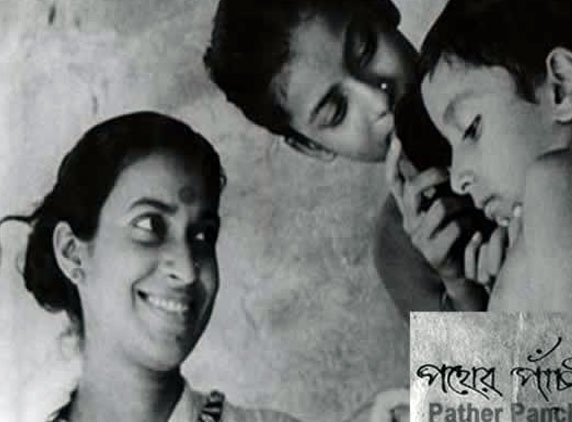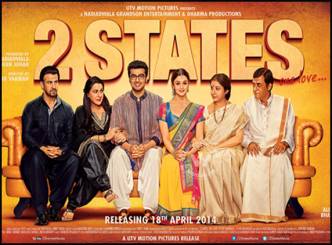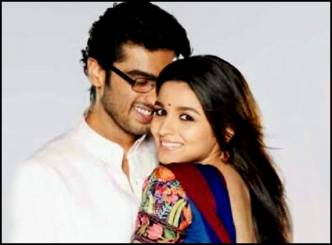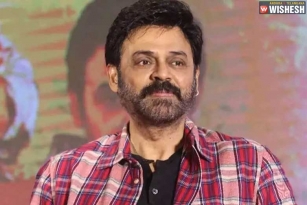
"Pather Panchali" is a novel written by Bibhutibhushan Bandopadhyay and which was translated into English and was published in 1976, as part of the UNESCO Collection of Representative Works. Later on it was adapted into a film of the same name by the legendary Film maker "Satyajit Ray." Pather Panchali was named in English as "Song of the Little Road." Pather Panchali deals with the life of the Roy family, both in their ancestral village in rural Bengal and later when they move to Varanasi in search of a better life, as well as the anguish and loss they face during their travels which was wonderfully depicted by Ray.
The first published novel was originally published in 1929, after being written by the author which was followed in 1932 by a sequel Aparajito and then Apur Sansar. Later on in the year 1955, India, 115 min, B/W film in Bengali was released with subtitles.
"Pather Panchali" was Ray's debut film, and the first film of his 'The Apu trilogy' for which he was honoured by "The Academy of Motion Picture Arts and Sciences" with an honorary "Oscar" in 1992 for Lifetime Achievement. The remaining two films of the trilogy, Aparajito and Apur Sansar, follow Apu as the son, the man and finally the father.
"Pather Panchali" has a universal humanist appeal. Though the film deals with the grim struggle for survival by a poor family, it has no trace melodrama. What is projected in stead is the respect for human dignity. The most loveable character is that of Indir Thakrun, an old, cynical, loving and storytelling aunt of Apu and Durga. It was played by an 80-year-old "Chunibala", a retired theatre performer who relished coming back into the limelight after 30 years of obscurity. The sequences of Apu and elder sister "Durga", exploring their little world and sharing secrets are most remarkable aspect of the film. These include the scenes of-discovery of train by Durga and Apu in field of white Kash flowers, the candy seller sequence, and Indir Thakrun's death.
In the inspired 'candy-seller' sequence, as Durga and Apu secretly relish tamarind paste, their mother is complaining about hardships to their father. Durga hears a faint bell. She knows it is the candy-seller. Both go out and look longingly at the the pots with sweets in them. Durga sends Apu to ask for money from their father. Mother intervenes, and Apu returns empty handed. But the site of the pot-bellied candy-seller caring two bobbing pots of sweets is too tempting to resist. Both start following him. A stray dog joins the procession as it is reflected in a shimmering pond.
The film develops its characters and the atmosphere slowly and resolutely. The narrative builds up to a powerful climax as we begin to empathize with the characters.
Some critics found the film to be too slow. Satyajit Ray wrote about the slow pace -
"The cinematic material dictated a style to me, a very slow rhythm determined by nature, the landscape, the country. The script had to retain some of the rambling quality of the novel because that in itself contained a clue to the authenticity: life in a poor Bengali village does ramble."
Towards the end of the film, after death of Durga, we see Apu brushing his teeth, combing his hair... going about performing tasks, which would have involved his sister or mother. Sarbajaya (mother) has a lost look...
Harihar returns, unaware of Durga's death. In a jovial mood he calls out his children. Without any reaction, Sarbajaya fetches water and a towel for him. Harihar begins to show the gifts he has brought for them. When he shows a sari that he has bought for Durga, Sarbajaya breaks down. We hear the high notes of a musical instrument "Tarshahnai" symbolising her uncontrollable weeping. Realising Durga's loss, Harihar collapses on his wife.
We see speechless Apu, for the first time taking the centre stage in the story. Till now the story was seen through the point of view of either Sarbajaya or Durga. It is only in these final moments that we see Apu as an independent individual.
In the USA, Pather Panchali played at the 5th Avenue Playhouse for a record 36 weeks, breaking the previous record held by The Cabinet of Dr. Caligari.
The film "Pather Panchali" has won numerous prestigious awards. To mention, President's Gold & Silver Medals, New Delhi, An honorary "Oscar" in 1992 for Lifetime Achievement 1955, Best Human Document, Cannes 1956 , The Government of India honoured him with the Bharat Ratna in 1992. Diploma Of Merit, Edinbugh, 1956,Vatican Award, Rome, 1956, Golden Carbao, Manila, 1956, Best Film and Direction, San Francisco, 1957, Selznik Golden Laurel, Berlin, 1957, Best Film, Vancouver, 1958,Critics' Award - Best Film, Stratford, (Canada), 1958, Best Foreign Film, New York, 1959, Kinema Jumpo Award: Best Foreign Film, Tokyo 1966, Bodil Award: Best Non-European Film of the Year, Denmark, 1966.
Whenever we watch the movie even today, it takes us into a different journey through life while giving us the most practical elements about life, itself!
(AW:Samrat Biswas)















